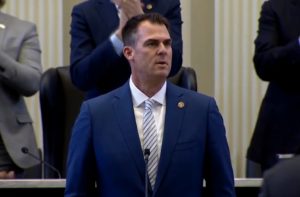Wisconsin ed department opposes parts of bill meant to shore up literacy
(The Center Square) – The retention policy requirement in a Republican-backed education proposal is a “non-starter” and opposed by the Wisconsin Department of Public Instruction.
The literacy…

(The Center Square) – The retention policy requirement in a Republican-backed education proposal is a “non-starter” and opposed by the Wisconsin Department of Public Instruction.
The literacy bill, Right to Read, would provide $50 million to train Wisconsin teachers on new methods of reading. Sen. Duey Stroebel, R-Cedarburg, said the focus would be on phonics and the science of reading.
“We are supportive of a literacy bill, but this version of the bill includes a retention policy requirement, and that is a non-starter for us because, as drafted, it is harmful to our learners, families, and communities,” State Superintendent of Schools Jill Underly said in a statement.
Stroebel said the percentage of fourth graders unable to read is unacceptable.
“Right now, I think it’s close to 70% of our fourth graders cannot read at grade level. And that is totally unacceptable,” Stroebel said. “Because we see when students can’t read at grade level in fourth grade, that is the building block and foundation of their education from there on.”
Stroebel added that kids who can’t read properly in fourth grade not only have a much higher chance of falling behind in school, but life in general.
“The first thing we have to do is reteach our teachers,” Rep. Joel Kitchens, R-Sturgeon Bay, told reporters at a statehouse news conference. “Because our universities, over the last couple of decades, have not been teaching reading properly.”
The legislation would have the state pay for 100% of that reteaching. The legislation would also pay half the costs for local schools to adopt new reading curriculums, and would pay for reading coaches. The plan would also start screening kids for reading vulnerability in kindergarten, and get them extra help as needed.
The legislation also has a retention policy.
“What we’re requiring is that districts come up with a policy in the next two years, and that it won’t take effect until five years from now,” Kitchens added. “We don’t want to hold kids back.”
Kitchens said Gov. Tony Evers has asked for negotiation between backers of the proposal and the Department of Public Instruction. Lawmakers are trying to include the $50 million in the new state budget.



